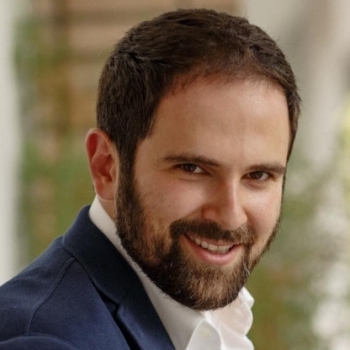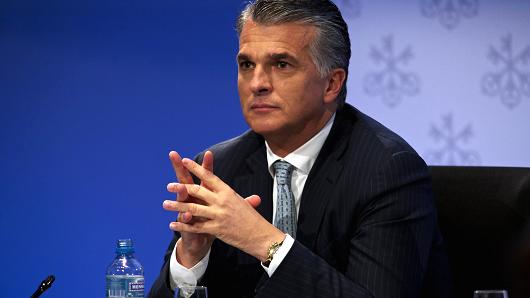Recently, Slovenia’s Prime Minister, Miro Cerar, touted the benefits of blockchain technology while speaking at the Digital Slovenia 2020 gathering. Cerar notably stated that the country was becoming a well-recognized player in the world, and added that his government aims to “position Slovenia as the most recognized blockchain destination In the European Union.”
During his speech, Cerar also revealed that the country is looking at administrative applications for blockchain technology, as its regulatory agencies and ministries are studying it. He stated:
“The regulatory bodies and ministries are already studying Blockchain, and the state is participating in activities at European level in the area of the introduction and regulation of this technology. We are also already laying the foundations for the initial pilot testing of the technology in the state administration.”
The Prime Minister also highlighted a government-backed “blockchain think tank” as part of the Slovenian Digital Coalition. The think tank, announced on October 3, will work as a point-of-contact between the government, blockchain developers, and industry players. The goal is to coordinate efforts while helping develop new regulations around the technology.
The think tank will also coordinate with different companies, to help create educational materials on blockchain technology. The Prime Minister added that successful Slovenian companies working with blockchain technology are already among the world’s leading developers of digital investment platforms.
Cerar’s words also pointed to the government supporting the technology as much as possible, so that the country can become a blockchain-friendly destination. He stated:
“Slovenia as a whole is, therefore, setting itself up as a Blockchain-friendly destination, and to that end it is establishing the pillars of a national Blockchain ecosystem in the area of the transfer and spread of information, the adoption of legal regulations and the promotion of a supportive environment for the development of companies working in the area of Blockchain technology.”
At the end of his speech, he cited the difficult times Slovenia went through following the economic crisis. The country, according to Cerar, is once again growing and gained strength thanks to what it went through. With the use of blockchain technology, it’s his belief that entrepreneurs will contribute to a new Slovenian success story. He asserted that blockchain technology should be used to improve people’s quality of life, as only then will progress have been made.
CCN spoke with blockchain expert Jan Isakovic, CEO of ICO incubator Cofound.it, the 9th largest Slovenian company by market cap.
CCN: How significant is Slovenia’s Prime Minister’s announcement for the country to become a leading blockchain destination?
Jan Isakovic: Cofound.it and partners have spent the last 5 months intensively working with all the relevant stakeholders, such as the Securities Agency, the Financial Administration, Office for money laundering prevention, the Central Bank, Ministry of Public Administration, Ministry of Finance, the Cabinet of the Prime Minister and others, in order to clarify numerous regulatory uncertainties. The recent announcement is the culmination of this effort and proof that Slovenia’s government regards blockchain technology and startups as one of the key foundations for future growth.
CCN: Slovenia is still recovering from the economic crisis. Will the government’s attitude towards blockchain technology help make a leader in FinTech?
Jan Isakovic: The attitude of the government and regulators will not only help foster the fintech entrepreneurs in Slovenia, but also attract blockchain startups from all over the world.
CCN: The country’s financial watchdog recently issued a warning on cryptocurrencies and ICOs, what’s Cofound.it’s reaction?
Jan Isakovic: While Cofound.it believes that token crowdfunding is a revolutionary concept that will change the world of financing forever, that does not mean that all projects seeking such funding are of a high standard. Cofound.it has strict evaluation and selection standards; for every announced project, around 30 are rejected. So we agree with the warning. Anyone thinking about supporting a crowdsale should also evaluate the team, their vision, and ability to execute before sending funds.
CCN: Has the warning affected the company?
Jan Isakovic: If anything, the warning has reaffirmed the fact that our extremely strict project evaluation criteria are needed.
CCN: Per the central bank, cryptocurrency awareness has grown “very much,” and the Prime Minister’s announcement reads that using blockchain technology will “contribute to the writing of a new Slovenian success story.” Do you think cryptocurrencies might soon be a part of this story?
Jan Isakovic: Slovenian entrepreneurs were early movers in the blockchain industry with companies like Bitstamp, Cashila, Iconomi, and Nicehash paving the way. Today, the crypto community based in Ljubljana is substantial and growing, with growth particularly facilitated by Cofound.it. Ljubljana is a vibrant market of blockchain developers and experienced advisors. Not only individuals in the private sector, but also individuals working for regulators, have in-depth knowledge and understanding of blockchain and related business models. The same applies to banks, which can provide reliable banking services even for those blockchain projects, which require high volume payment processing. This is an environment that is sure to produce even more future fintech leaders.
CCN: Where do you see Slovenia’s FinTech scene in the next five years?
Jan Isakovic: Slovenia is an ideal hub for running any blockchain business due to a high level of legal safety, knowledgeable regulators, easy access to the EU and global markets, and experienced advisors and developers. And last but not least, Slovenia has a vibrant crypto community which is led by blockchain companies like Iconomi, Cofound.it, and Bitstamp. We see Slovenia as one of the prime destinations for blockchain startups, fintech or otherwise.
CCN: Does Cofound.it plan to expand now that Slovenia openly embraced blockchain technology?
Jan Isakovic: Cofound.it is focused on providing an end-to-end support system for the best blockchain startups. This includes not just amazing coaches, legal and PR assistance, but also help in providing a regulated environment for the base of operations and liquidity after the crowdsale, as our collaborations with Jaxx and Ethfinex can attest.
CCN: Anything else you would like to share with our readers?
Jan Isakovic: Cofound.it aims to create a distributed VC ecosystem for a distributed age, and community is the foundation for that. We started with blockchain startups in the “Series A” phase and with our successful crowdsales for Santiment, Musiconomi, Maecenas, and DA Power Play raising over $30 million altogether. We have now expanded our focus to include startups in “seed” stage with Cofound.it Seed, where startups seeking from $200,000 to $1 million are evaluated by the community to decide which projects are ready to proceed to the next stage and the full crowdsale. The first five projects were announced two weeks ago, with more candidates to follow shortly.









